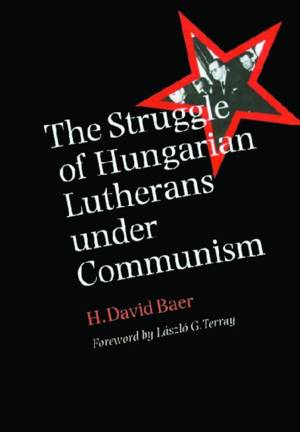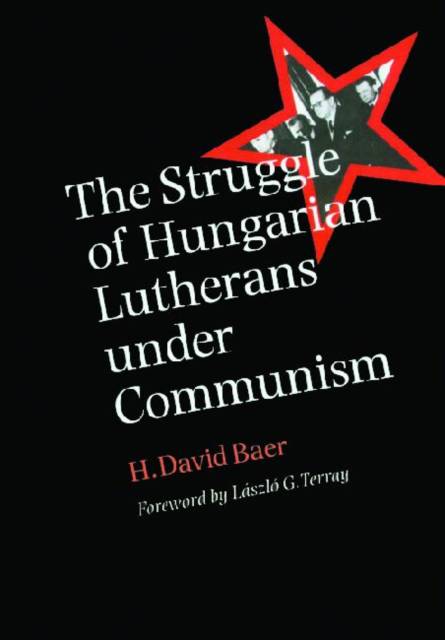
Je cadeautjes zeker op tijd in huis hebben voor de feestdagen? Kom langs in onze winkels en vind het perfecte geschenk!
- Afhalen na 1 uur in een winkel met voorraad
- Gratis thuislevering in België vanaf € 30
- Ruim aanbod met 7 miljoen producten
Je cadeautjes zeker op tijd in huis hebben voor de feestdagen? Kom langs in onze winkels en vind het perfecte geschenk!
- Afhalen na 1 uur in een winkel met voorraad
- Gratis thuislevering in België vanaf € 30
- Ruim aanbod met 7 miljoen producten
Zoeken
Omschrijving
What does a religious community do when confronted by a political regime determined to eliminate a religion? Under communism, Hungary's persecuted Lutheran Church tried desperately to find a strategy for survival while remaining faithful to its Christian beliefs. Appealing to the Lutheran Confessions, many argued that the church can do whatever is necessary to survive provided it does not compromise on its essential ministry, while others appealing to the witness of the confessor Bishop Lajos Ordass, argued that the church must uncompromisingly witness to the truth even if that means ecclesiological extinction. In The Struggle of Hungarian Lutherans under Communism, H. David Baer draws upon the disciplines of theology, history, ethics, and politics to provide a comprehensive analysis of the different strategies developed by the church to preserve its integrity. Relying on previously unnoted archival documents and other primary sources, Baer has made a substantial contribution to Eastern European studies. Vigorously written, his telling of the history is also a sensitive and moving account of courage and cowardice in the fact of religious persecution. This book should be of interest not only to students of religion in Eastern Europe but also to anyone concerned about the problems that arise wherever there is religious persecution. H. DAVID BAER, who holds a Ph.D. in theology from the University of Notre Dame, is an assistant professor of theology and philosophy at Texas Lutheran University. He lived in Hungary for four years.
Specificaties
Betrokkenen
- Auteur(s):
- Uitgeverij:
Inhoud
- Aantal bladzijden:
- 172
- Taal:
- Engels
- Reeks:
Eigenschappen
- Productcode (EAN):
- 9781603449908
- Verschijningsdatum:
- 1/01/2013
- Uitvoering:
- Paperback
- Formaat:
- Trade paperback (VS)
- Afmetingen:
- 152 mm x 229 mm
- Gewicht:
- 258 g

Alleen bij Standaard Boekhandel
+ 66 punten op je klantenkaart van Standaard Boekhandel
Beoordelingen
We publiceren alleen reviews die voldoen aan de voorwaarden voor reviews. Bekijk onze voorwaarden voor reviews.









